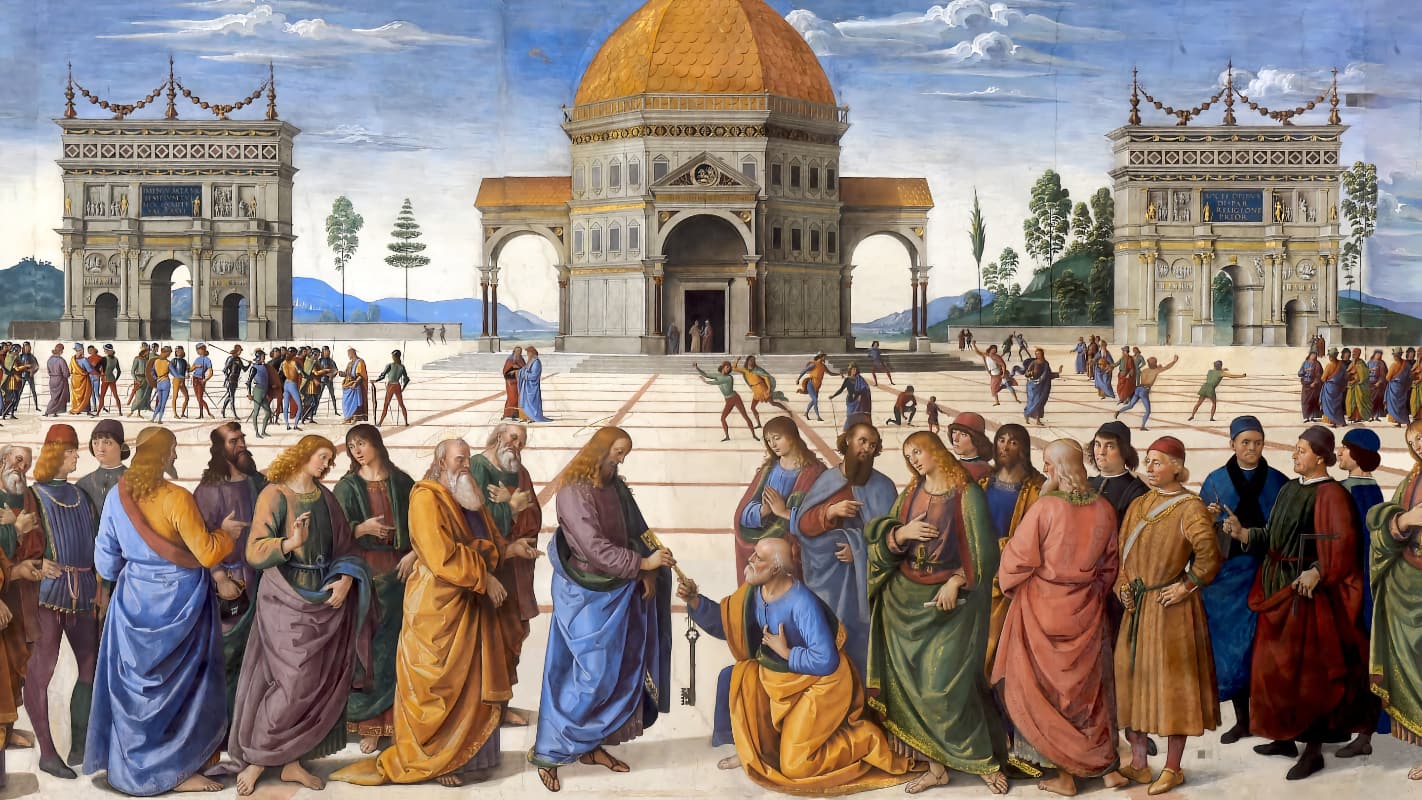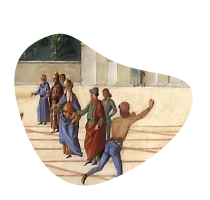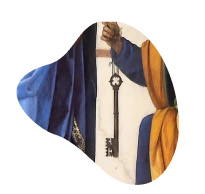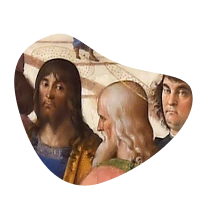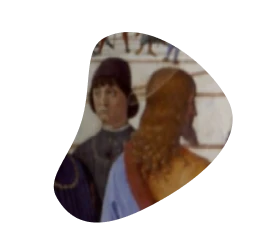During one of his 1538 Table Talks, Martin Luther declared:
Josquin is the master of the notes, which must do as he wishes, while other composers must follow what the notes dictate. He most certainly possessed a great spirit … particularly since he was able to work Haec dicit Dominus and Circumdederunt together so effectively and melodiously.
Luther was talking about Josquin’s 6-part motet Nymphes, nappés, which he had sung through with some friends. He wanted it performed at his deathbed, he said. Though Josquin’s music was already very popular at the time, Luther’s endorsement certainly took the composer’s reputation to a new level. Would he have been as famous without Luther’s praise?
In Antwerp, the Renaissance scholar and musician Stratton Bull tells us about an important cultural dispute prevalent at the time that one needs to keep in mind when thinking about this question: the ambivalent role that polyphony, and vocal polyphony such as Josquin’s in particular, played in church music. Did it induce divine inspiration, or was it wickedly sensual and earthly? In Hieronymus Bosch’s famous triptych The Garden of Earthly Delights, which today can be seen at the Prado in Madrid, tormented souls group together to sing music written on the naked backside of a demonic figure. Did the pure nature of Josquin’s polyphony help to persuade the punters that music wasn’t necessarily evil?

David Burn, head of the Early Music Research Group at the University of nearby Leuven, suggests that Josquin’s music was in fact no better or worse than that of many of his contemporaries, and that it was Martin Luther’s stamp of approval, coupled with the happenstance of publishing, that made him so famous. But, of course, not everyone agrees. We speak with veteran Josquin scholar Willem Elders about the singularity of Josquin’s music, and we travel to Italy, where we meet Raffaele Mellace in Milan and Guido Zaccagnini in Rome—both musicology professors who believe that the key to Josquin’s enduring success can be found within the music itself, and that Josquin’s international life helped to make his style so accessible.
British singer and author Donald Greig has a quite different theory about Josquin’s key to success: that he was actually a nasty piece of work, talented but bitter, and ruthlessly ambitious. He elaborates on this theory in his novel on the subject, Time Will Tell. “It’s very harsh on Josquin from the start,” Donald tells us. “And I was aware that I was dissing a figure whom lots of people revere—as do I, his music is extraordinary. But I figured that if anyone’s reputation could survive someone laying into them like that, it’s certainly Josquin’s.”
Not surprisingly, Peter Phillips, founder and director of the Tallis Scholars and the heart of this Pierre Boulez Saal project, disagrees strongly with Donald Greig. Is it fair, he asks, to disrespect the long-dead greats? Josquin, he suggests, left a body of work as significant as Beethoven’s; the former’s masses are comparable to the latter’s symphonies.
“What you don’t quite realize is what Josquin actually does on the last page—it just makes your head explode when you see what’s happening.”—Jesse Rodin
Finally, we speak with American musicologist and Josquin scholar Jesse Rodin who talks us through Josquin’s Nymphes, nappés, the piece that so impressed Martin Luther. At the time, he was teaching a Josquin seminar and analyzed the piece with his students: “It’s just absolutely beautiful. But what you don’t quite realize is what Josquin actually does on the last page—it just makes your head explode when you see what’s happening. Just the simple idea that you would take a little, little motive, a little melodic cell, and you would repeat it over and over again, in different voices and different combinations. That was really, dramatically new. And Josquin seems more than anyone else to have invented it.”

Jesse Rodin, like so many others, can see exactly what it is in Josquin’s motet that so excited Martin Luther when he and his friends first sang it. Of course, Luther wasn’t rescuing Josquin from obscurity; he was already very famous. Somehow, his work had gained enough of a reputation during his lifetime for him to move across Europe, from one august court to the next. Whether, as Donald Greig suggests, that was through cold calculation and ambition, or, as Peter Phillips is convinced, through unprecedented genius, the fact is that Josquin’s music was enthusiastically consumed—and copied—throughout Europe by the early 1500s. Next, we will take a closer look at Josquin’s early years—how important was his time in France? Find out in the next episode!
Master of the Notes is a Max Music Media production commissioned by the Pierre Boulez Saal and written by Shirley Apthorp and Willem Bruls.
Born in South Africa, Shirley Apthorp grew up in Australia and studied music at the University of Tasmania. Since 1996, she has lived in Berlin, writing about music for numerous international publications including the Financial Times (UK), Bloomberg (USA), and Opernwelt. Her work has been published in the United Kingdom, the U.S., Australia, Germany, Austria, Japan, Brazil, the Netherlands, Norway, and South Africa. In 2010, she founded the award-winning non-profit organization Umculo which supports social development through music theater in South Africa. Shirley Apthorp received the Classical:NEXT Innovation Award in 2019.
Willem Bruls holds degrees in literature and history of art and works as dramaturge, author, music critic, and librettist. He has published extensively on a wide range of subjects, including most notably a study of Wagner’s Ring cycle and orientalism in opera. He collaborated with directors such as Guy Cassiers and Pierre Audi and directed several music theater productions himself. He wrote a stage adaptation of Pasolini’s Teorema for the Ruhrtriennale Festival and has given workshops on contemporary music theater, libretto writing, and youth theater throughout Europe. He serves as an advisor for the performing arts to the Dutch Arts Council.
Credits
Original Music for this podcast was composed by Karim Said and recorded by Angela Boutros, Elias Aboud, Roshanak Rafani, and Joseph Protze of the Barenboim-Said Akademie.
Excerpts from Josquin des Prez, Nymphes, nappés / Circumdederunt me, recorded by Cinquecento © courtesy of Hyperion Records Ltd., London.
Excerpt from Josquin des Prez, Missa Pange lingua, recorded by The Tallis Scholars & Peter Phillips © Gimell Records.
Excerpt from Josquin des Prez, Nymphes des bois, recorded by Cappella Pratensis & Joshua Rifkin © Challenge Records, 2010.
Excerpt from Josquin des Prez, Scaramella va a la guerra, recorded by Ensemble Clément Janequin & Dominique Visse © courtesy of harmonia mundi.
In case of violation of copyright, we kindly ask the rights holders to contact us.
